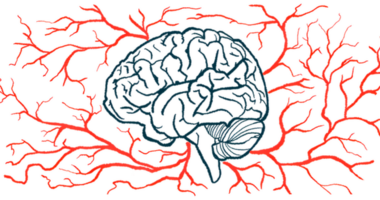NE3107, alone or with levodopa, may lead to motor function gains
Researchers presented data at MDS conference in Copenhagen

NE3107, BioVie’s experimental oral therapy for Parkinson’s disease, is showing promise as a first-line therapy to ease motor symptoms and as a possible strategy to enhance the benefits of standard carbidopa and levodopa therapy.
According to data from a Phase 2 clinical trial and a preclinical study with a marmoset monkey model of Parkinson’s disease, NE3107 showed no unfavorable impacts to carbidopa/levodopa and was associated with marked motor skills gains in most patients as a first-line therapy. Preclinical data from the monkey study supported mobility gains, likely via easing neuroinflammation.
This “adds to the growing body of data for NE3107 that support our core understanding of this molecule and its potential in diseases such as PD [Parkinson’s disease],” Cuong Do, president and CEO of BioVie, said in a press release. The findings were shared at the 2023 International Congress of Parkinson’s Disease and Movement Disorders (MDS), Aug. 27-31, in Copenhagen.
Parkinson’s patients commonly manifest neuroinflammation and insulin resistance, a condition wherein cells no longer respond to the action of insulin, a hallmark of type 2 diabetes. Insulin deregulation can make neurological problems worse, since nerve cells must use a lot of energy to send electrical signals.
Since insulin regulates energy and metabolism, problems in its signaling limit the use of blood sugar by nerve cells. As a result, their function is affected. Abnormally high blood sugar is also thought to promote inflammation.
What is NE3107?
NE3107 is a small, orally available molecule that’s meant to penetrate the brain and promote anti-inflammatory and insulin-sensitizing responses against neuroinflammation and energy-related challenges. BioVie secured the therapy’s rights from NeurMedix in 2021.
“The presentations include new preclinical data that support the relationship between neuroinflammation and insulin resistance in diseases like PD, and new analyses from our Phase 2a clinical trial that further characterize the pharmacokinetics of NE3107 and its potential as an adjunctive or first-line therapy,” Do said.
Researchers presented data from NM201 (NCT05083260), which enrolled 40 Parkinson’s patients, ages 30-80, who were randomly assigned to NE3107 (20) or a placebo (19) alongside levodopa/carbidopa. Both NE3107 and the placebo were given as a 20 mg dose twice daily for 28 days. The trial assessed NE3107’s safety, tolerability, and pharmacokinetics against the placebo. Pharmacokinetics refers to a therapy’s movement into, through, and out of the body.
The results from the safety and pharmacokinetics analyses were presented in the poster, “Safety and Pharmacokinetics of Anti-inflammatory NE3107 Treatment in Carbidopa/Levodopa-treated Patients with Parkinson’s Disease: A Phase 2a, Double-blind, Placebo-controlled Study” (abstract 1).
NE3107 was well tolerated and no treatment-related side effects were reported. It also led to no detrimental impact on the concentration of levodopa, the pharmacokinetics profile of which was maintained after 14 days of treatment as assessed by its mean blood concentration across time.
In the poster, “A Randomized, Phase 2a, Double-Blind, Placebo-Controlled Clinical Trial with NE3107 Adjunctive to Carbidopa/Levodopa in Patients with Parkinson’s Disease,” researchers presented an exploratory efficacy analysis of the NM201 trial. It focused on motor function, as assessed by the Movement Disorder Society-Unified Parkinson’s Disease Rating Scale (MDS-UPDRS) Part III. Higher scores indicate greater severity (abstract 2).
After 28 days, those treated with NE3107 saw more gains two or three hours post-dosing over the placebo. These were especially marked among patients younger than 70.
Six patients in the NE3107 group were found to be in the “on” state before taking their morning levodopa and carbidopa. None in the placebo group were “on.” The on state is when patients see improved motor function and reduced symptoms.
Most patients given NE3107 (80%, including 88.9% of those age 70 and younger) saw more than a 30% gain in their motor skills within two hours after being treated. This was only seen in 63.6% of those given a placebo (including 66.7% of those age 70 and younger).
NE3107 as first-line therapy in monkeys
The effects of NE3107 as a first-line therapy in a marmoset monkey model were shared in “Effects of NE3107 Anti-Inflammatory Treatment on Motor Activity and Neurodegenerative Features of Parkinson’s Disease in a Marmoset Monkey Model” (abstract 1353).
Parkinson’s-like symptoms were induced by treating the monkeys with MPTP, a neurotoxin that mimics Parkinson’s disease symptoms, for up to six weeks.
On week eight, the animals were randomly assigned to a vehicle solution without any active therapy, NE3107, or amantadine (sold as Gocovri) an approved oral therapy for “off” episodes, when medication wears off and symptoms aren’t adequately controlled.
Levodopa was started in all the animals on week 10. This was followed by higher doses to induce a condition known as levodopa-induced dyskinesia, or LID, which is marked by uncontrollable involuntary movements.
NE3107 alone improved the animals’ mobility compared with amantadine or the vehicle solution. The gains were seen within 24 hours of administrating NE3107, suggesting a direct impact on motor nerve cells’ signaling.
Combining it with levodopa significantly improved mobility and led to a significant LID reduction. The number of dopamine-producing neurons — those gradually lost in Parkinson’s — was two times higher in NE3107-treated animals over those given the vehicle solution.
The findings support NE3107’s potential to boost motor function and levodopa’s benefits and its continued evaluation in follow-up clinical trials, according to BioVie, which is considering a pivotal Phase 3 clinical trial to continue to test NE3107 with Parkinson’s disease.







